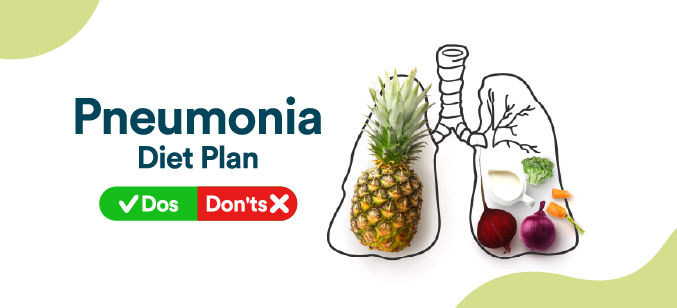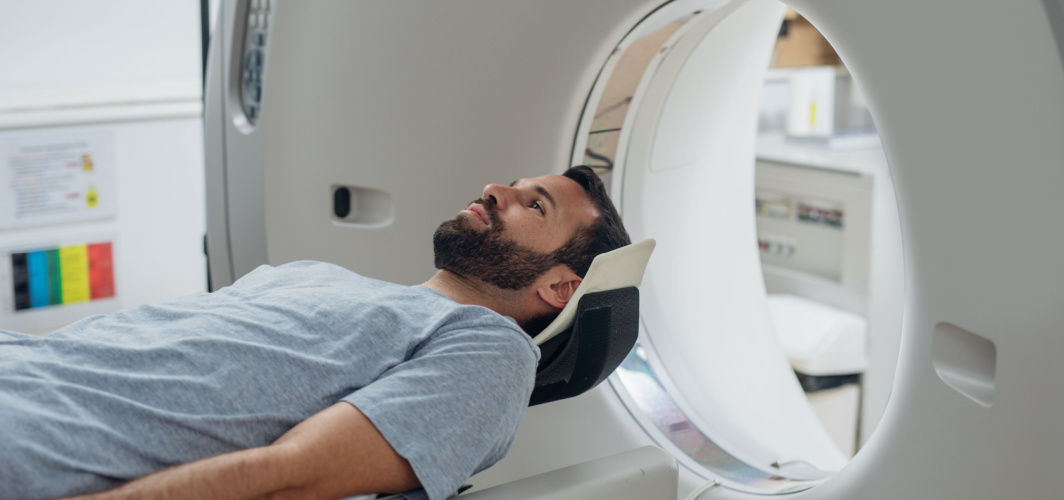General Health
Dengue Fever: 9 Warning Signs You Must Know
8 min read
By Apollo Pharmacy, Published on - 31 July 2023, Updated on - 16 September 2025
Share this article
0
1 like

Dengue fever is a viral infection transmitted by mosquitoes, particularly the Aedes mosquito. It is a significant public health concern in India, with thousands of cases reported each year and many people losing their lives to this dreaded disease. Recognising the warning signs of dengue fever is crucial for early detection and timely treatment. In this article, we will delve into the warning signs of dengue fever. Let's dive right in!
What is Dengue Fever?
Dengue fever is a viral infection that is transmitted through the bite of infected mosquitoes, primarily the Aedes aegypti mosquito. It is a global health concern, particularly in tropical and subtropical regions like India. There are four types of dengue viruses, namely DEN-1, DEN-2, DEN-3, and DEN-4. Each type can cause mild to severe symptoms.
Symptoms and Warning Signs of Dengue
It is important to recognise the warning signs of dengue fever, as early detection and prompt treatment can prevent complications. Here are the symptoms and warning signs to look out for:
- High fever: A sudden onset of high fever, usually above 104°F (40°C), is one of the first signs of dengue fever.
- Severe headache: Intense headaches, especially behind the eyes, may occur in the early stages.
- Joint and muscle pain: Severe pain in the joints, muscles, and bones is common, giving dengue fever its nickname "breakbone fever.
- Rash: A rash may appear on the skin after a few days, usually starting on the limbs and spreading to the rest of the body.
- Persistent vomiting: Vomiting that doesn't stop or worsens over time.
- Severe abdominal pain: Intense pain in the abdomen that may indicate internal bleeding.
- Bleeding gums: Bleeding gums or easy bruising may occur due to a decrease in platelet count.
- Rapid breathing: Difficulty breathing or rapid breathing could be a sign of respiratory distress.
- Fatigue: Extreme tiredness or lethargy that persists despite resting.
Diagnosis of Dengue
Dengue fever is diagnosed through a combination of clinical evaluation and blood tests.
When you visit a healthcare professional with suspected dengue fever symptoms, they will carefully examine your medical history and perform a physical examination. The doctor will ask about the onset of symptoms, recent travel history, and any exposure to mosquitoes.
Blood tests are the most reliable method to confirm the diagnosis of dengue fever. The two main types of blood tests used are:
- Polymerase Chain Reaction (PCR) Test: This test detects the presence of the dengue virus in your blood by amplifying its genetic material. It is most effective during the first few days of illness.
- Antibody Test: This test detects antibodies produced by your immune system in response to the dengue virus. It is most accurate after 5-7 days of illness.
Treatment of Dengue
Once diagnosed with dengue fever, treatment options that can help alleviate your symptoms and speed up recovery include:
- Rest: Getting plenty of rest is essential to allow your body to fight off the infection and recover.
- Hydration: Drinking fluids, such as water, oral rehydration solutions, and electrolyte-rich drinks, is important to prevent dehydration caused by high fever and vomiting.
- Pain management: Over-the-counter pain relievers like acetaminophen (paracetamol) can help reduce fever and relieve muscle aches and joint pain associated with dengue fever.
When it comes to severe cases of dengue fever, it is crucial to seek immediate medical attention. Hospitalisation and specialized medical care are often necessary to manage the complications that can arise. Here are some of the medical interventions commonly used for severe dengue:
- Intravenous fluids: Dehydration may occur due to excessive sweating and high fever. Intravenous fluids are administered to restore fluid balance and prevent complications.
- Blood transfusions: In some cases, dengue can lead to a decrease in platelet count, which can affect blood clotting. Blood transfusions may be required to replenish platelets and improve clotting function.
- Supportive treatments: Severe dengue can cause organ damage or dysfunction. Supportive treatments, such as oxygen therapy, may be provided to assist with breathing difficulties.
- Medications: There is no specific antiviral medication for dengue fever. However, medications like pain relievers and antipyretics may be prescribed to manage symptoms such as high fever and joint pain.
- Monitoring: During hospitalisation, frequent monitoring of vital signs, complete blood counts, and other parameters is essential to assess the progression of the disease and ensure appropriate management.
Prevention of Dengue
1. Mosquito Control Measures
To prevent dengue fever, it is essential to control mosquito populations. Here are some effective prevention strategies:
- Eliminate standing water: Regularly empty containers and clean areas where mosquitoes breed, such as flower pots, water coolers, and discarded tires.
- Use insect repellents: Apply insect repellents containing DEET, picaridin, or oil of lemon eucalyptus on exposed skin to repel mosquitoes.
- Wear protective clothing: Cover up with long-sleeved shirts, long pants, socks, and shoes to minimise exposed skin.
- Sleep under mosquito nets: Use mosquito nets while sleeping, especially in areas with a high incidence of dengue fever.
2. Community Engagement
By involving the entire community in raising awareness and taking preventive measures, we can significantly reduce the incidence of this potentially life-threatening disease. Here are some strategies and initiatives that highlight the importance of community involvement:
- Awareness Campaigns: Conducting regular awareness campaigns is essential to educate the community about dengue fever, its symptoms, and preventive measures. These campaigns can be organised through various platforms such as social media, local newspapers, and community meetings.
- Clean-Up Drives: Engaging the community in clean-up drives is an effective way to eliminate breeding grounds for mosquitoes that carry the dengue virus. Encourage individuals to regularly inspect their surroundings for stagnant water and dispose of any potential mosquito breeding sites.
- Community Participation: Encourage community members to actively participate in reporting suspected cases of dengue fever to local health authorities. Timely reporting can help identify and contain outbreaks quickly.
- Collaboration with Local Authorities: Foster collaboration between community members and local authorities to implement effective vector control measures. This includes regular fogging, larviciding, and ensuring proper waste management practices.
Complications and Long-Term Effects
Dengue fever is a serious illness that can lead to various complications if not managed properly. It is important to be aware of the potential complications and long-term effects associated with this disease.
1. Complications of Dengue
Organ damage: Severe cases of dengue fever can affect the liver, heart, and other vital organs. This can lead to organ failure if not treated promptly.
- Hemorrhagic fever: In some cases, dengue fever can progress to a more severe form called dengue hemorrhagic fever (DHF). This can cause internal bleeding, low platelet count, and organ dysfunction.
- Dengue shock syndrome: DHF can further progress to dengue shock syndrome (DSS), which is characterised by a sudden drop in blood pressure. It can be life-threatening and requires immediate medical attention.
2. Long-Term Effects of Dengue
- Post-Dengue fatigue syndrome: Some individuals may experience prolonged fatigue even after recovering from dengue fever. This can persist for weeks or months, affecting daily activities and quality of life.
- Immune system dysfunction: Studies have shown that dengue fever can affect the immune system, making individuals more susceptible to other infections in the future.
- Increased risk of severe dengue: If you have previously had dengue fever, you are at a higher risk of developing severe forms of the disease upon subsequent infections.
Dengue Fever in Children and Pregnant Women
Dengue fever is a viral illness that can affect people of all ages, including children and pregnant women. Here are some key points to keep in mind:
For children
Children may not always be able to express their symptoms clearly, so parents need to be vigilant.
- Look out for warning signs such as high fever, severe headache, pain behind the eyes, joint and muscle pain, rash, and bleeding.
- Ensure that your child gets plenty of rest and drinks lots of fluids to stay hydrated.
- Avoid giving aspirin or ibuprofen as they can increase the risk of bleeding. Instead, use acetaminophen for fever and pain relief.
For pregnant women
Pregnant women who contract dengue fever should seek immediate medical attention.
- The virus can potentially harm both the mother and the unborn baby.
- Symptoms such as high fever, severe headache, and body aches should not be ignored.
- Pregnant women should also stay hydrated and get plenty of rest.
Conclusion
It is important to be aware of the warning signs of dengue fever to seek prompt medical attention. Some of the most common warning signs include high fever, headache, body pain, rash, fatigue, nausea and swollen lymph nodes. If you experience any of these symptoms, it is important to seek medical attention immediately. Remember, early detection and treatment can make a significant difference in managing dengue fever effectively.
To prevent dehydration in Dengue,
FAQs
Q. How long does dengue fever last?
The duration of dengue fever varies from person to person. Typically, the acute phase lasts about one week, followed by a period of recovery that can take up to a month.
Q. Can dengue fever be fatal?
Yes, dengue fever can be life-threatening, especially if not diagnosed and managed promptly. Severe cases can lead to dengue hemorrhagic fever.
Q. How can I protect myself from dengue fever?
The best way to protect yourself from dengue fever is by preventing mosquito bites. Use mosquito repellents, wear protective clothing, and eliminate stagnant water sources around your home.
Q. Is there a specific treatment for dengue fever?
There is no specific antiviral treatment for dengue fever. Treatment mainly focuses on managing symptoms and preventing complications.
Q. Can I get dengue fever from someone who has it?
No, dengue fever is not directly contagious and cannot be spread from person to person.
Medically reviewed by Dr Sonia Bhatt
General Health
Frequently Asked Questions
Are my health records safe and secure?
Are my health records safe and secure?
Leave Comment
Recommended for you

General Health
Pneumonia Diet: What to Eat and Avoid in Pneumonia?
Pneumonia is a serious lung disorder in which the lung cells get filled with fluid. Besides knowing the treatment options, one should eat a specialised pneumonia-friendly diet to ease the symptoms and aid faster recovery.

General Health
Five Effective Ways To Deal With High Cholesterol!
High cholesterol levels increase the risk of heart diseases and stroke. This article addresses how one can determine and deal with excess cholesterol.

General Health
The Role of MRI Scans in Detecting and Diagnosing Cancer
Discover the pivotal role of MRI scans in early cancer detection and diagnosis, offering insights for improved patient care.
Subscribe
Sign up for our free Health Library Daily Newsletter
Get doctor-approved health tips, news, and more.
Visual Stories

Science-backed Home Remedies for Burns and Blisters
Tap to continue exploring
Recommended for you

General Health
Pneumonia Diet: What to Eat and Avoid in Pneumonia?
Pneumonia is a serious lung disorder in which the lung cells get filled with fluid. Besides knowing the treatment options, one should eat a specialised pneumonia-friendly diet to ease the symptoms and aid faster recovery.

General Health
Five Effective Ways To Deal With High Cholesterol!
High cholesterol levels increase the risk of heart diseases and stroke. This article addresses how one can determine and deal with excess cholesterol.

General Health
The Role of MRI Scans in Detecting and Diagnosing Cancer
Discover the pivotal role of MRI scans in early cancer detection and diagnosis, offering insights for improved patient care.